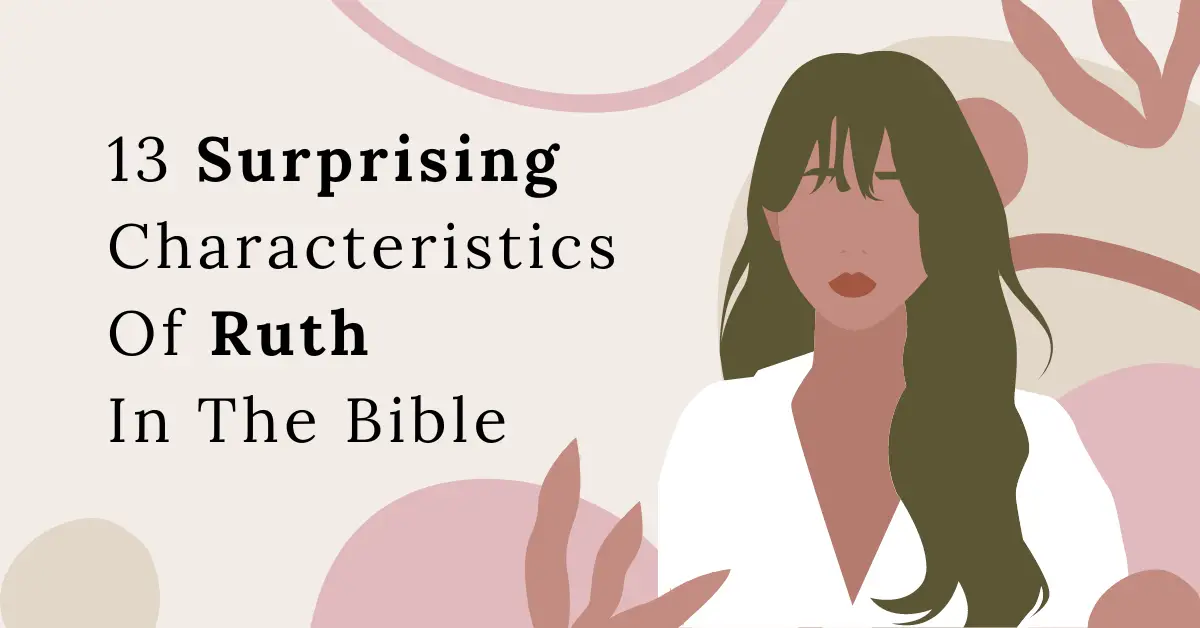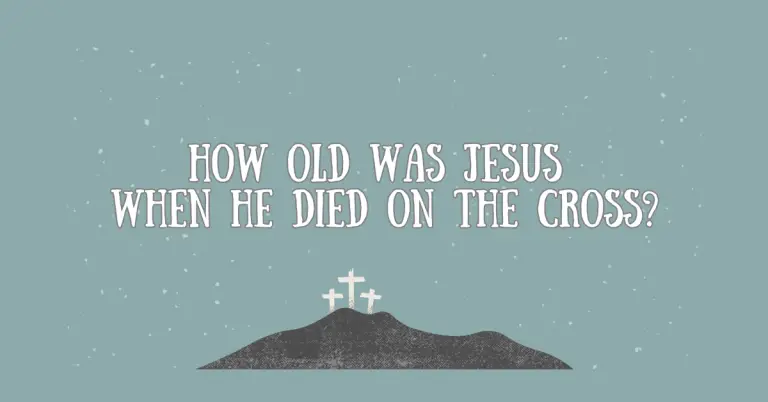Ruth In The Bible: 13 Surprising Characteristics (2025)
I studied the characteristics of Ruth that may surprise you. How did I do it?
As a pastor, I have carefully studied the book of Ruth for six weeks. I have taught the book in Sunday school. I had to examine the original language to understand the meaning of the important Hebrew words.
Then, I preached six sermons from this book of the Bible to my local church. The feedback from my congregation was positive.
Now, it’s time to share what I have discovered about this story and Ruth’s surprising characteristics.
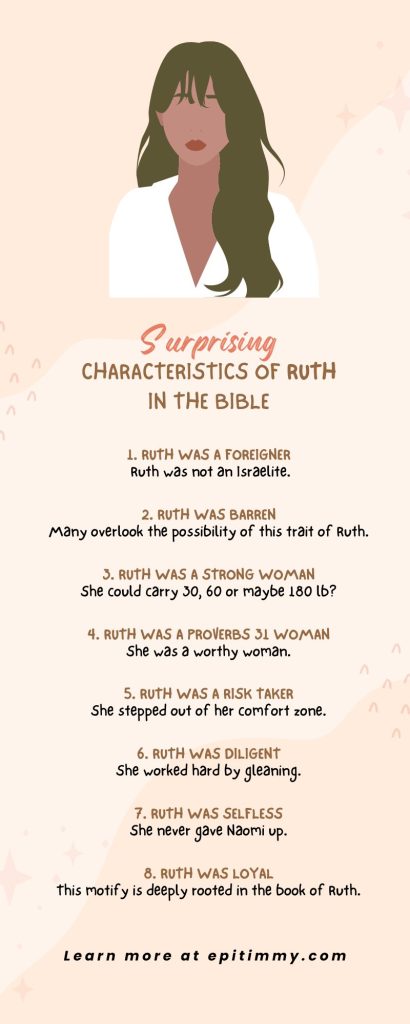
What Are The Surprising Characteristics of Ruth In The Bible?
1. Ruth was a foreigner
Ruth was not an Israelite. She did not belong to the people of God.
God’s word indicates that she was a Moabite (Ruth 1:4).
In the story of Ruth, the family of Elimelech and Naomi sojourned in a foreign land called Moab.
Why is that? It is because there was a famine in their native Bethlehem (Ruth 1:1). They chose to travel about 80 KM southeast just to live in Moab.
However, Moab was a nation that was in enmity with Israel. It was a nation that worshipped false gods (Ruth 1:15). Therefore, Ruth was without a doubt a pagan.
But Ruth chose to leave Moab and move to Bethlehem with Naomi. She was recognized as a foreigner when she was in Bethlehem (Ruth 2:5-6). The author constantly reminds the readers that she was “Ruth the Moabite” (Ruth 1:22, 2:2, 2:6, 2:21, 4:10).
In spite of being a Gentile, she will marry Boaz. It is possible that Ruth reminded Boaz of her mother, Rahab (Matthew 1:5). Like Ruth, Rahab was an outsider and foreigner in the Israel (Joshua 2).
2. Ruth was a widow
Tragedy strikes immediately when the family was living in Moab. All the women lost their husbands for whatever reason (Ruth 1:3, 1:5).
So, Ruth experience the loss of her husband. She became a widow, just like Naomi. She may have buried her deceased husband, Mahlon (Ruth 4:10).
The irony is that Mahlon means sickness in Hebrew. That might not be sufficient to explain why he died.
It is quite possible that Elimelech, Mahlon and Chilion experienced the judgment and wrath of God. But I cannot say with 100% certainty.
You will not be able to see this in the English translation. You would need to do a Word Study on the word, “Left” or “to be left” in the Hebrew language in verses 3 and 5: “she was left…”
“[This word] often speaks of bereavement at the death of another and often refers to those who have survived the wrath and judgment of God.”
Daniel Isaac Block, Judges, Ruth, vol. 6, The New American Commentary (Nashville: Broadman & Holman Publishers, 1999), 627–628.
How is this Hebrew word used in the Old Testament? For example, it is used five times when God sent the plagues upon Egypt and some survived the plague (Exodus 8:9, 8:11, 10:5, 10:12, 10:19, 10:26).
Was it because Mahlon married a Moabite woman? Nowhere in the OT are Israelites strictly forbidden from marrying Moabites. But there are principles in the OT where Israelites cannot intermarry with others that serve other gods. Orpah and Ruth would be pagans worshipping other gods.
Nonetheless, we need to remember that this story was tragic. Consequently, Ruth became a widow.

3. Ruth was barren
Many overlook the possibility of this trait of Ruth. I will suggest that most likely Ruth was barren.
Mahlon married Ruth the Moabite. Marriage is a time of celebration. This would have given Naomi comfort and hope who just lost her husband.
The author intentionally tells us that they lived in Moab for about ten years (Ruth 1:3). Now that’s fascinating. Why is that?
Should we not expect the couple to have children? (Rhetorical question)
The couple does not seem to have had children. If they did, the author would have told us.
It is very uncommon in the Ancient Near East for couples to be married for 10 years without having children. (Unless the couples were not able to have one.)
In other words, Ruth may have been barren. Being barren in the ancient world was a shameful thing in that culture.
The Scripture tells us that God opens and closed the womb. So God could have not blessed Mahlon and Ruth to have children.
However, after Boaz became her new husband, God opened up Ruth’s womb so that she can conceive and bear a son (Ruth 4:13).

4. Ruth was loyal
One of the key traits of Ruth was her loyalty. This motif is deeply rooted in this book.
The Hebrew word for loyalty is HESED. It is repeated three times in this book (Ruth 1:8, 2:20, 3:10). This word can also be translated as “steadfast love” or “lovingkindness.” It is usually used in the context of God’s covenant, unfailing devotion, loyal and everlasting love for Israel.
Ruth was Naomi’s daughter-in-law.
After Naomi told her to go back to Moab, Ruth refused to listen to her mother-in-law (Ruth 1:12-15). Ruth did not want this painful parting between them. She wanted to be loyal to her husband by taking care of his mother.
The most obvious approach for Ruth to demonstrate her loyalty is by declaring her faithful loyalty to Naomi (Ruth 1:16-17). She demonstrasted this steadfast love by providing for her.
There is a deeper truth to Ruth’s loyalty.
Naomi prayed that the LORD would show lovingkindness (HESED) towards Ruth (and Orpah) (Ruth 1:8). Since she was not in the position to offer HESED to Ruth, Naomi knew that the LORD can. How will God do that?
Little did Naomi know, Ruth knew that she can offer HESED to her mother-in-law. The LORD will show His lovingkindness to Naomi through Ruth’s lovingkindness.
This is all part of God’s sovereign plan for her. Throughout the story, the LORD will use Ruth to demonstrate this lovingkindness in restoring Naomi’s emptiness to fullness.
Loyalty (HESED) is a powerful and divine motif in this story.

5. Ruth worshipped the God of Israel
Ruth clung to Naomi, expressing that she’d be with Naomi wherever she went. She went on to make a confession of faith by saying, “Your people shall be my people, and your God my God” (Ruth 1:16).
Ruth’s confession of faith is fascinating because it’s so extraordinary. Ruth was a Moabite and had lived in Moab all of her life. Moabites were committed to idol worship. Ruth worshipped idols and pagans.
But now she’s a worshipper of the God of Israel. She would be one of the many Gentiles (non-Jews) in the Old Testament who entered the kingdom of God.
She demonstrated her faith in the LORD by taking refuge under the wings of the LORD (Ruth 2:12). This gives us a picture of God who is like a mother bird spreading her wings to shadow and protect her young. Since Ruth has done that, she is under the special and tender care of her LORD.
It’s her faith in the LORD in the midst of uncertainty that motivated her to do good works. God’s grace was indeed evident in Ruth’s life.

6. Ruth was a risk taker
Ruth had to make many difficult decisions and step out of her comfort zone.
For example, she moved from the country of Moab to the little town called Bethlehem.
This account alludes to Abraham when the LORD called upon him to leave his country and go to an unknown land. This unknown land would eventually be called the Promise Land, the land of Canaan, or Israel.
Unlike Abraham, Ruth did not receive any promises or direct revelation from God. Ruth did not know the land of Judah. She left her country to go to an unknown place. She left her own family to meet the people whom she does not know.
Her faith and choice to follow Naomi were extremely risky because the young women of Bethlehem may reject and despise her because she’s a Moabite. There is no guarantee that her new life in Israel will be a paradise.
But because of her oath and commitment to Naomi (Ruth 1:17), she’s willing to risk it all. When Ruth went to find a field to glean, she did not know where she’s going. However, God put her in the fields of Boaz.
That is what love looks like. Love is not just some good feeling you have for someone. It’s about commitment and loyalty to serve and love others no matter the cost. Ruth’s faith was remarkable. She perhaps has more faith in the LORD than Naomi in the season of uncertainty and sadness.
Moreover, Chapter 3 of Ruth is a dicey and spicy scene in this book. Ruth is going to turn up the heat. This chapter is the climatic turning point of this story. It’s filled with drama, suspense, anticipation and risks.
Allow me to explain briefly.
Naomi devised a clever plan to get Ruth and Boaz together. She told Ruth that Boaz was winnowing barley at the threshing floor in the evening (Ruth 3:2). So, Noami told Ruth to go to the threshing floor.
The most bizarre and shady part of the plan is when Naomi instructed Ruth to “uncover his feet and lie down, and he will tell you what to do” (Ruth 3:4). An Israelite would blush because there may be sexual overtones in the original language.
For instance, the word, “to uncover,” is used many times in Leviticus. This means exposing someone’s nakedness. It was a euphemism for sexual relations. The word, “feet,” could have a sexual connotation for the reproductive organ.
But based on context, this gesture of uncovering his feet is meant to give Boaz a signal that Ruth is interested in marriage.
Nonetheless, Naomi was creating a risky plan for Ruth. There is a potential that Boaz could have interpreted her gesture as an invitation for lovemaking. This could have become the most scandalous news in Bethlehem.
Ruth, however, responds with obedience and trust. She did not question Naomi’s crazy plan.
She’s been a woman of faith ever since chapter 1. She took the risk and left her country, family and gods to worship the true living God and identify the Israelites as her own people.
In chapter 2, she took the risk of gleaning in a field and ended up choosing Boaz’s field!
In chapter 3, she took the risk and trusted Naomi’s plan. The outcome turned out to be positive.

7. Ruth was selfless
Ruth and Naomi knew that they were desolate. From the perspective of Naomi, she interpreted her tragedy as God’s judgment upon her (Ruth 1:20).
Naomi and Ruth returned to Bethlehem by the grace of God.
When Naomi was feeling the despair and hopelessness, she allowed Ruth to go glean, but she does not join her (Ruth 2:1-2).
Biblical love demands selflessness. Regardless of Naomi’s bitterness, Ruth did not give up on her. She was willing to serve Naomi and provide for her by gleaning.
Her selflessness was not overlooked by our God and Boaz (Ruth 2:11-12). Because of all the things that Ruth has done for Naomi, Boaz prays that the LORD will repay her.
Furthermore, her selflessness companies her diligence.
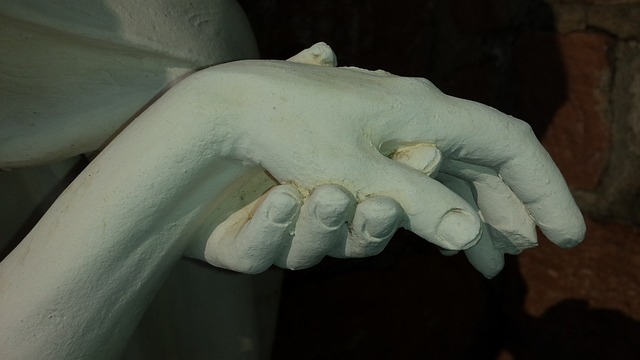
8. Ruth was diligent
Ruth had a good work ethic that would earn her great respect from Boaz.
But you need to understand the Old Testament background of Ruth’s work. Chapter 2 of Ruth describes an agricultural term called gleaning.
Gleaning is not the same as harvesting. Gleaning involves picking up ears of grain that the reapers have unintentionally dropped. They were not to go back and pick up the grains. The charge of the reapers were to leave them in the corner of the field for the vulnerable to pick up.
God’s law makes provision for the poor (Deuteronomy 24:19).
The nature of gleaning was extremely hard work. Ruth had to glean under the scorching heat during the hot season. Since the reapers were prudent at their job, it would have been difficult for Ruth to find grains that were dropped.
A modern example of gleaning is like gathering plastic bottles and cans to recycle in return for a few cents.
So the payoff for gleaning was meagre. But it would had been sufficient to provide for one person. Would Ruth glean for herself or for Naomi? Obviously, she’ll do her best to provide for the family.e
Since it was harvest time, Ruth had to find a field to glean. She happened to be in the field belonging to Boaz. And he was a relative of Naomi. He was part of the clan of Elimelech (Ruth 2:1-3).
By the grace of God, Boaz lavished his kindness to Ruth. He allowed her to continue to glean until evening. Without her knowledge, Boaz gave special instructions to the younger men. They were to pull some out of the bundles of grain and leave them there for Ruth to glean.
For what purpose? To let her pick them up with little effort.
Ruth gleaned until evening and got an ephah of barley. Gleaners were able to gather on average meagre portions just barely enough for one person.
In this extraordinary act of grace, Ruth was able to gather about 22 litres of barley which would have been about 30-50 pounds. To put it in perspective, that’s about 3 weeks of food for just one day of work!
This also highlights Ruth’s strength.

9. Ruth was a strong woman
Ruth carried the fruit of her labour back home. Naomi was certainly shocked by Ruth’s one day of productivity (Ruth 2:18-19). Through Ruth’s diligence and strength, they revived Naomi’s mood and spirit. She was filled with hope and praise for the LORD (Ruth 2:20).
There is another scene at the end of Ruth 3 that describes her strength. After the incident at the threshing floor, Boaz gave Ruth six measures of barley (Ruth 3:15).
The weight of six measures of barley is debatable. It could be 30 lb, 60 lb or even 180 lb. The amount should fit on the garment that Ruth’s wearing. It would most likely be a mantle.
The six measures of barley would be given to Naomi (Ruth 3:17). Imagine how heavy that barley would have been. Boaz told Ruth, “you must not go back EMPTY-HANDED to your mother-in-law.” This is significant.
“Empty-Handed” is the same Hebrew word used in Ruth 1:21 when Naomi returned back to Bethlehem and she indicted God for bringing her back empty. But God brought Naomi back with Ruth. Ruth was someone that God was using to show His lovingkindness to Naomi.
This offering of barley was meant to show Boaz’s interest in redeeming Naomi’s property. Chapter 4 reveals that the LORD was using Boaz as a means to restore her from emptiness to fullness.
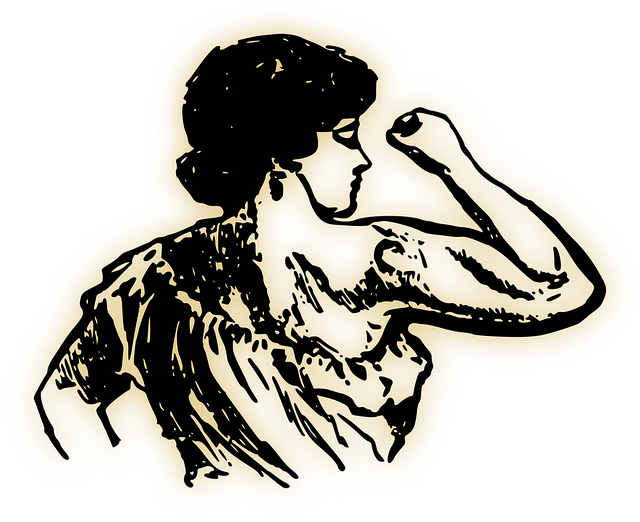
10. Ruth was a worthy woman
In the latter half of chapter 3, Ruth petitions Boaz to spread his wings over her because he’s a kinsman redeemer (Ruth 3:10). Boaz interpreted her request as a proposal for marriage. This act impressed Boaz greatly for it was a great act of kindness.
In response, Boaz pledged to fulfill her petition. The reason is that Ruth was a worthy and virtuous woman.
This word, “worthy,” can be translated as strength, power, able, mighty, valiant, brave, and competent. Most of the time, it is translated as an army.
Boaz was affirming that Ruth would be a capable wife. This ties closely with the next astounding characteristic about her.

11. Ruth was a Proverbs 31 woman
Why am I bringing this up?The order of books in the English Bible is different from the order in the Hebrew Bible.
The Old Testament has a threefold division: the Law, the Prophets, and the Writings.
- The Law includes Genesis, Exodus, Leviticus, Numbers, and Deuteronomy.
- The Prophets include Joshua, Judges, 1-2 Samuel, 1-2 Kings, Isaiah, Jeremiah, Ezekiel, and the Twelve (the Minor Prophets).
- The Writings include Psalms, Job, Proverbs, Ruth, Song of Songs, Ecclesiastes, Lamentations, Esther, Daniel, Ezra-Nehemiah, and 1-2 Chronicles.
Ruth is part of the biblical canon. It belongs under the section of the Writings, instead of the Prophets. I am not smart enough to provide a good explanation.
In the Hebrew Bible, what is striking is that Ruth comes right after Proverbs. This is because Proverbs concludes by describing the excellent wife or woman. The next book would use Ruth as an example of an excellent woman.
And the people in Bethlehem knew that Ruth would be an excellent wife to Boaz.
Ruth was virtuous. She exemplifies the excellent woman found in Proverbs 31. Take note of how Ruth resembles the woman in that chapter.
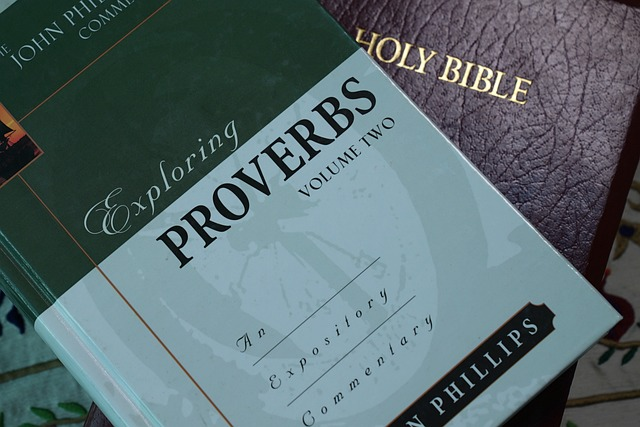
12. Ruth has a special meaning in Hebrew
All the characters in this book have a special meaning in Hebrew. What is the biblical meaning of Ruth’s name?
The word, “Ruth,” is mentioned 12 times in this book. Her name means
- Female companion or neighbour.
- Friend, lover, comrade, companion, or to befriend.
- To be refreshed with an abundance of water.
Ruth surely lived out the meaning of her name.
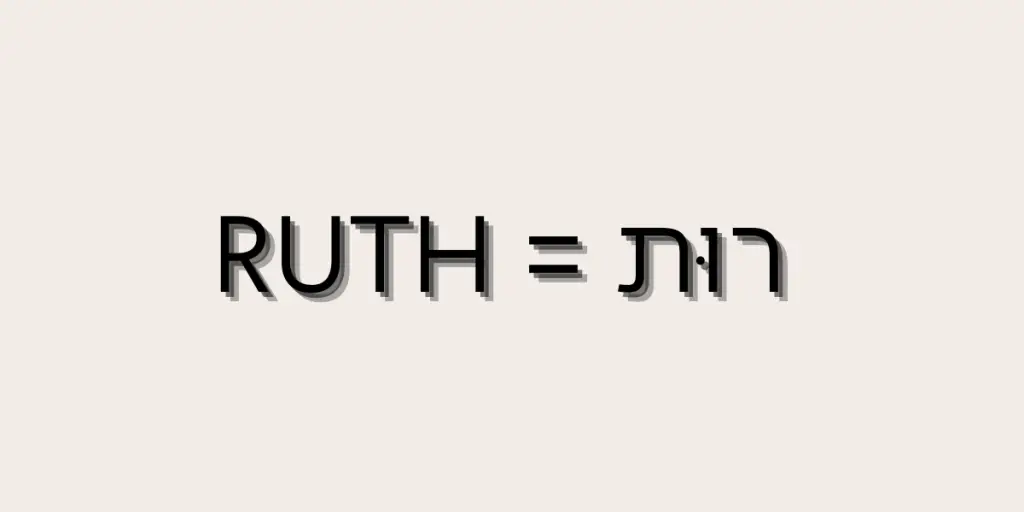
13. Ruth was the ancestor of Jesus
The book of Judges ended with no king. Everyone did what was right in his own eyes (Judges 21:25). The book of Ruth ended with a king. Ruth would become the ancestor of King David (Ruth 4:17, 4:22).
Israel longed for a king. God provided His anointed king. They were to submit to him.
Sadly, king David was a sinner who needed forgiveness for sin. He was a murderer and an adulterer.
But God made a covenant with David in 2 Samuel 7. This was famously known as the Davidic Covenant. God promised him to establish the house of David eternally with an eternal throne. Who will sit on David’s throne?
In Matthew 1, the Apostle Matthew began with a genealogy of Jesus Christ. He wrote that Ruth was Jesus’s ancestor (Matthew 1:5). Jesus will eternally sit on David’s throne and establish his throne forever. Jesus is the greater David. He is the King.

The Biblical Story Of Ruth, Boaz, and Naomi In The Bible
Ruth is probably one of my favourite books in the Holy Scripture. It is famously known as the love story.
Christians tend to focus on Ruth and Boaz as the characters of this story (in fact, this book is named after Ruth).
But let me suggest that Naomi should be regarded as the central character. She lost everything in the beginning. However, God restored her to fullness through Boaz and Ruth.
The main point of this story is not how you can be a Ruth in order to get a Boaz; it is also not about being a Boaz in order to get a Ruth.
Yes, Boaz marries Ruth in the end.
Behind this little story is an overarching story of God’s plan of redemption. God is mysteriously weaving through the mundane life and circumstances of the characters.
For what purpose? God’s purpose is to accomplish His ultimate plan of salvation in bringing the Messiah, Christ Jesus. This is The Mystery Of Providence.
Wait, did I just say the mundane life? Yes, I did.
The book of Ruth describes ordinary human beings with an ordinary life going through somewhat ordinary events, much like ours.
For example, here are some things we do not see in this book.
- We don’t see God sending 10 plagues or parting the Red Sea.
- There were no miracles, such as raising the dead or calming the storm.
- There were no prophets in this story.
- Boaz, Ruth, Naomi and other characters did not receive direct revelation from God.
- We don’t see God making any promises and covenants with these characters.
From a human perspective, this story shows mundane and ordinary life events, such as a crisis, losing loved ones, travelling, working in the field, enjoying a feast, and doing legal business.
But behind the ordinary things is the extraordinary God. He worked out His good and sovereign plan for Naomi through ordinary means.
Naomi suffered greatly after the death of her husband, Elimelech, who was Ruth’s father-in-law. Sadly, Naomi’s sons also died ten years later.
After coming back to Bethlehem with Ruth from the land of Moab, she was extremely bitter. She indicted God for taking away everything from her and bringing her back empty. Indeed, she does think God is sovereign, but He’s not good to her.
If you are honest with yourself, you may tend to think that way when you go through life’s storms. And maybe if we don’t believe that God is good, we’re afraid that He’s going to leave us and abandon us. However, that’s not who God is.
Naomi may have believed that God was not good, but He was not done with her. Her first chapter is not her final chapter. God mysteriously weaved this ordinary history and ordinary human beings to show His lovingkindness to Naomi.
Behind Ruth’s story is the character herself, Ruth. God chose Ruth to restore Naomi to wholeness.
What a faithful God we worship!
Final Thought About Ruth
Congratulations on making it this far in your reading! (or skimming)
You have received a lot of information about Ruth. I hope you discovered some golden nuggets.
Ruth was a woman of God with a godly character. She has set an excellent example for Christians.
Women of the faith can learn what it means to be godly women and wives.
Men of the faith can learn about her selfless traits.
The book of Ruth is not all about her. It is all about the sovereignty of God. His plan to restore Naomi is weaved through this book via ordinary means. Since the shadow of His wings was upon this family, will His not be upon you?
WHAT ARE YOUR THOUGHTS?
I would like to hear from you!
What is one thing that you learned about the characteristic of Ruth?
Is there another thing that missing on the list that we could learn about her?
Feel free to let me know by leaving a comment below right now.
Connect with me on Twitch or Twitter!
Frequently Asked Questions
What Is A Kinsmen Redeemer?
One of the key themes in the book of Ruth is the idea of a “Kinsman-Redeemer.”
In the Old Testament, there were prescribed laws where a close relative, a kinsman-redeemer, could redeem:
- A family member sold into slavery (Lev. 25:47–49)
- land that needed to be sold under economic hardship (Lev. 25:23–28)
An optional choice that a kinsman-redeemer could make is to perpetuate the family name by virtue of a levirate marriage (Deuteronomy 25:5–10).
Who Wrote the Book of Ruth?
There is no clear indication of who the author of Ruth could have been.
One possible theory is that Samuel, the prophet, wrote the book of Ruth.
What Are The Characteristics Of Naomi In The Bible?
In brief, Naomi’s husband died. The same goes for her two sons.
Naomi demonstrated bitterness over her loss. She was no longer a young woman who can hypothetically marry and give birth to a son for Ruth.
Nevertheless, she did trust God in the end. God rewards and restores her at the end of the story.

